Related Research Articles

The Spanish Communist Workers' Party is an anti-revisionist Marxist-Leninist communist party in Spain. It was founded in 1973, when Enrique Líster revolted against the Eurocommunist line of Communist Party of Spain (PCE) general secretary Santiago Carrillo. The party published Análisis.

Barcelona is the capital of Anzoátegui State, Venezuela, and was founded in 1671. Together with Puerto La Cruz, Lecheria and Guanta, Barcelona forms one of the most important urban areas of Venezuela, with a population of approximately 950,000.

The Communist Party of Chile is a communist party in Chile. It was founded in 1912 as the Socialist Workers' Party and adopted its current name in 1922. The party established a youth wing, the Communist Youth of Chile, in 1932.
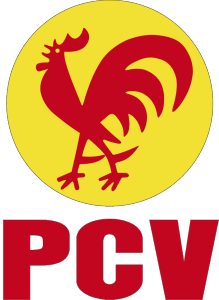
The Communist Party of Venezuela is a communist party in Venezuela. Founded in 1931, it is the oldest active political party in Venezuela, and was the country's main leftist party until it fractured into rival factions in 1971. The PCV currently opposes the government of Nicolás Maduro.

Puerto La Cruz is a port city located in Anzoátegui State, in Venezuela. It is the seat of the Juan Antonio Sotillo Municipality. The city has road connections to the state capital, Barcelona, to Lecheria and to Guanta.
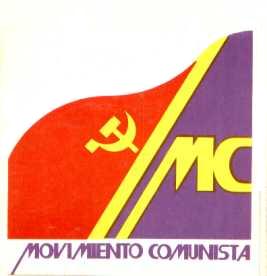
Communist Movement was a political party in Spain. It was founded in 1972 as Movimiento Comunista de España (MCE).
The Venezuelan Popular Union was a political party in Venezuela. The UPV was built along 'Browderist' pattern. UPV had its roots in the Municipal Union (UM), which had been legalized in 1941 and had functioned as a legal cover for the underground Communist Party of Venezuela. The party was founded on March 13, 1944, through the merger of the Municipal Union of the Federal District, the Zulian Unification League and eleven state-level 'People's Unions'. The decision to form UPV as a political party was taken at the Fourth National Conference of the Communist Party of Venezuela.

Douglas Ignacio Bravo Mora was a Venezuelan politician and guerrilla fighter.

El Tigre is a city of Anzoategui, a state located east of Venezuela's capital city of Caracas. Located in what is called the "Guanipa Mesa", a river (Tigre) runs across the city. The average temperature is 79°F, all year around, and the annual average rainfall is 1,200mm. One nearby tourist destination is the Chimire Cliffs.

The Armed Forces of National Liberation was a Venezuelan guerrilla group formed by the Communist Party of Venezuela to foment revolution against the democratically elected governments of Rómulo Betancourt and Raul Leoni.
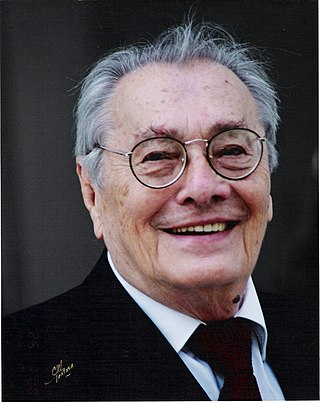
Luis Manuel Miquilena Hernández was a Venezuelan politician. He was involved in politics in the 1940s, and again after the 1958 restoration of democracy, but retired from politics in 1964 until the early 1990s, pursuing a career in business. He was then an early supporter of Hugo Chávez' post-1992 political career, and was the Venezuelan Minister of Interior and Justice from 2001 to 2002, when he resigned.
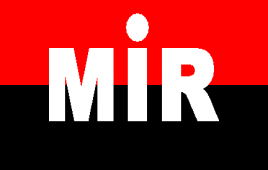
The Revolutionary Left Movement was a left-wing Marxist political party in Venezuela. It split from Acción Democrática in 1960 and became involved in armed guerrilla struggle against the Venezuelan state.
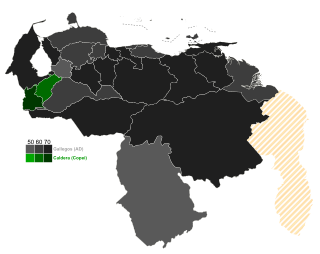
General elections were held in Venezuela on 14 December 1947. The presidential elections were won by Rómulo Gallegos of Democratic Action, who received 74.3% of the vote, the largest presidential win in Venezuela's modern history. His party won 83 of the 110 seats in the Chamber of Deputies and 38 of the 46 seats in the Senate.

Vladimir Villegas Poljak is a Venezuelan journalist and politician. He was President of Venezolana de Televisión from late 2003 to December 2004. He has written regularly for El Nacional and El Mundo, with a weekly column in El Nacional. He is a founder of the Avanzada Progresista party, having previously been a supporter of Patria Para Todos.

Trabajo ('Work') was a weekly newspaper published from San José, Costa Rica, from 1931 to 1947. It was the organ of the Communist Party of Costa Rica. Trabajo provided ample coverage of trade union activism. Moreover, the newspaper frequently reproduced proletarian poetry.
Anarchism in Venezuela has historically played a fringe role in the country's politics, being consistently smaller and less influential than equivalent movements in much of the rest of South America. It has, however, had a certain impact on the country's cultural and political evolution.
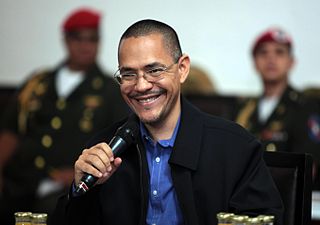
Ernesto Emilio Villegas Poljak is a journalist, politician, and writer from Venezuela.

Rafael Segundo Guerra Ramos is a Venezuelan politician who served as a member of the country's parliament from 1973 to 1993. He was a leader of Venezuela's Partido Comunista de Venezuela, PCV and a founding member of the Movimiento al Socialismo (MAS), but withdrew from the MAS in 1998 after the party's leadership backed the candidacy of Hugo Chávez, for the presidency. Since 1999 he has been outspoken in his opposition to the governments of Chávez and Nicolás Maduro and has served as president and vice president of the Association of Retired Members of Parliament and the Social Welfare Institute for Members of Parliament.
Elections to local municipal councils were held across Venezuela on May 9, 1948, except for the Federal District and the Federal Territories were local authorities had been elected in December 1947. These were the first municipal elections with direct universal and secret suffrage held separately from the national presidential or legislative elections.
The Progressive Liberal Party was a political party in the Amazonas Federal Territory of Venezuela. The party had a loose organization and was set up ahead of the 1947 Venezuelan general elections. The PLP was close to the Democratic Republican Union (URD). PLP won the sole parliamentary seat in the Amazonas Federal Territory in the December 1947 elections, obtaining 860 votes. PLP also won the municipal election held alongside the parliamentary vote, winning 3 out of the 5 seats in the Municipal Council of the Amazonas Federal Territory.
References
- 1 2 3 4 5 6 7 Steve Ellner (1988). Venezuela's Movimiento Al Socialismo: From Guerrilla Defeat to Innovative Politics. Duke University Press. p. 36, 96. ISBN 9780822308089.
- ↑ Giuseppe D'Angelo (2017). Salvador de la Plaza: Un intellettuale dimenticato. Edizioni Paguro. p. 148. ISBN 978-88-99509-51-4.
- 1 2 3 4 5 6 7 8 Años de redefinición en América Latina: la década de los cuarenta. Fondo Editorial Humanidades. 1998. pp. 67–68. ISBN 978-980-00-1369-4.
- 1 2 Silvia Mijares (1980). Organizaciones políticas de 1936: su importancia en la socialización política del venezolano. Academia Nacional de la Historia. p. 121.
- ↑ Jorge Giordani (1 January 1986). Planificación, ideología y estado: el caso de Venezuela. Vadell Hnos. Editores. p. 321. ISBN 9789802120291.
- 1 2 3 4 5 Donna Keyse Rudolph; G. A. Rudolph (1996). Historical Dictionary of Venezuela. Scarecrow Press. p. 517. ISBN 978-0-8108-3029-5.
- ↑ Boris Bunimov-Parra (1968). Introducción a la sociología electoral venezolana. Editorial Arte. p. 74.
- 1 2 Estudio de Caracas. Ediciones de la Biblioteca. 1972. pp. 730–731, 742.
- ↑ Clara Marina Rojas (1 January 1992). El inicio del juego democrático en Venezuela: un análisis de las elecciones 1946-1947. Academia Nacional de la Historia. p. 46. ISBN 978-980-222-559-0.
- ↑ Los Partidos políticos y sus estadísticas electorales, 1946-1984. Consejo Supremo Electoral, División de Estadística. 1987. p. 405.